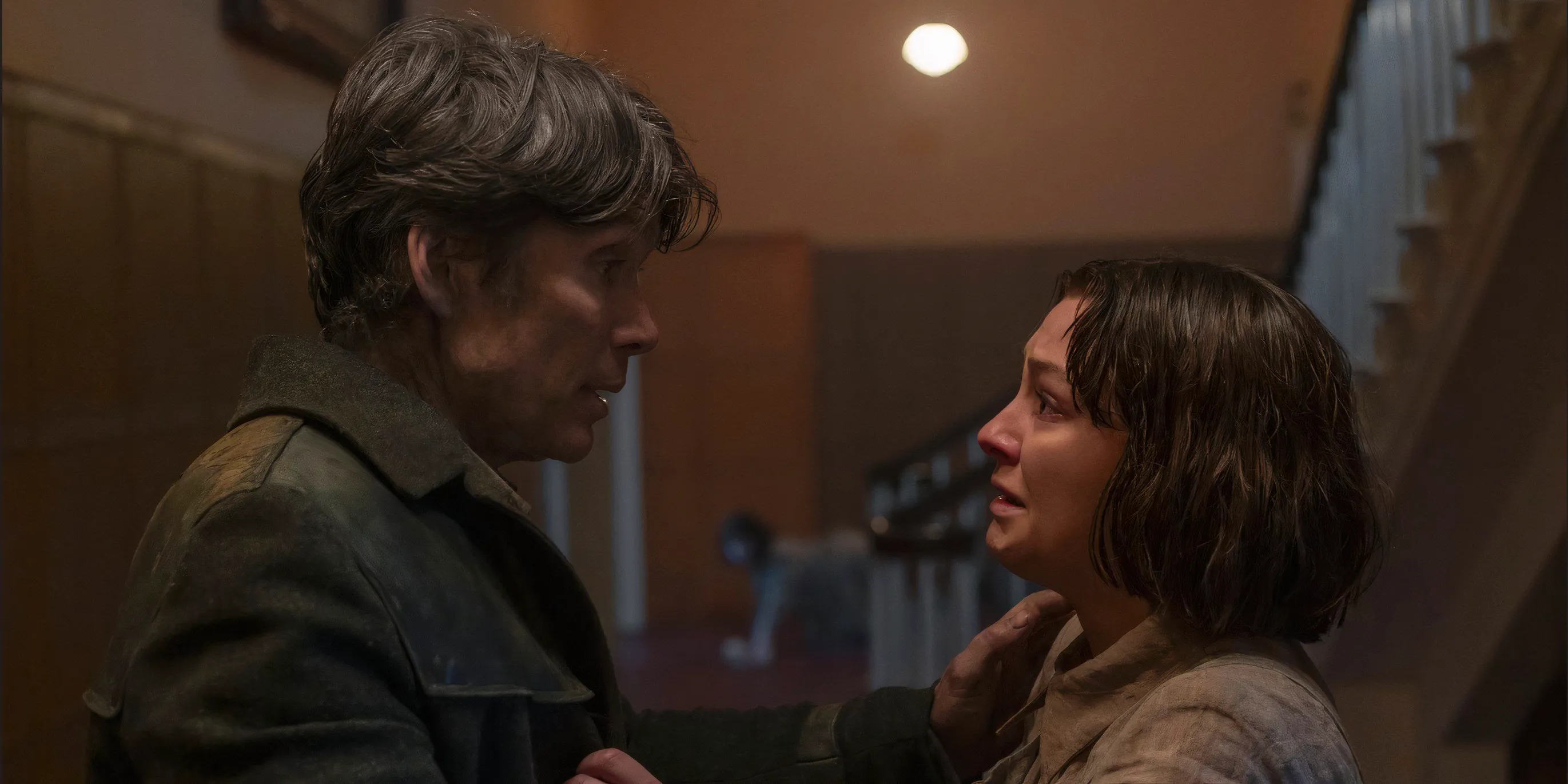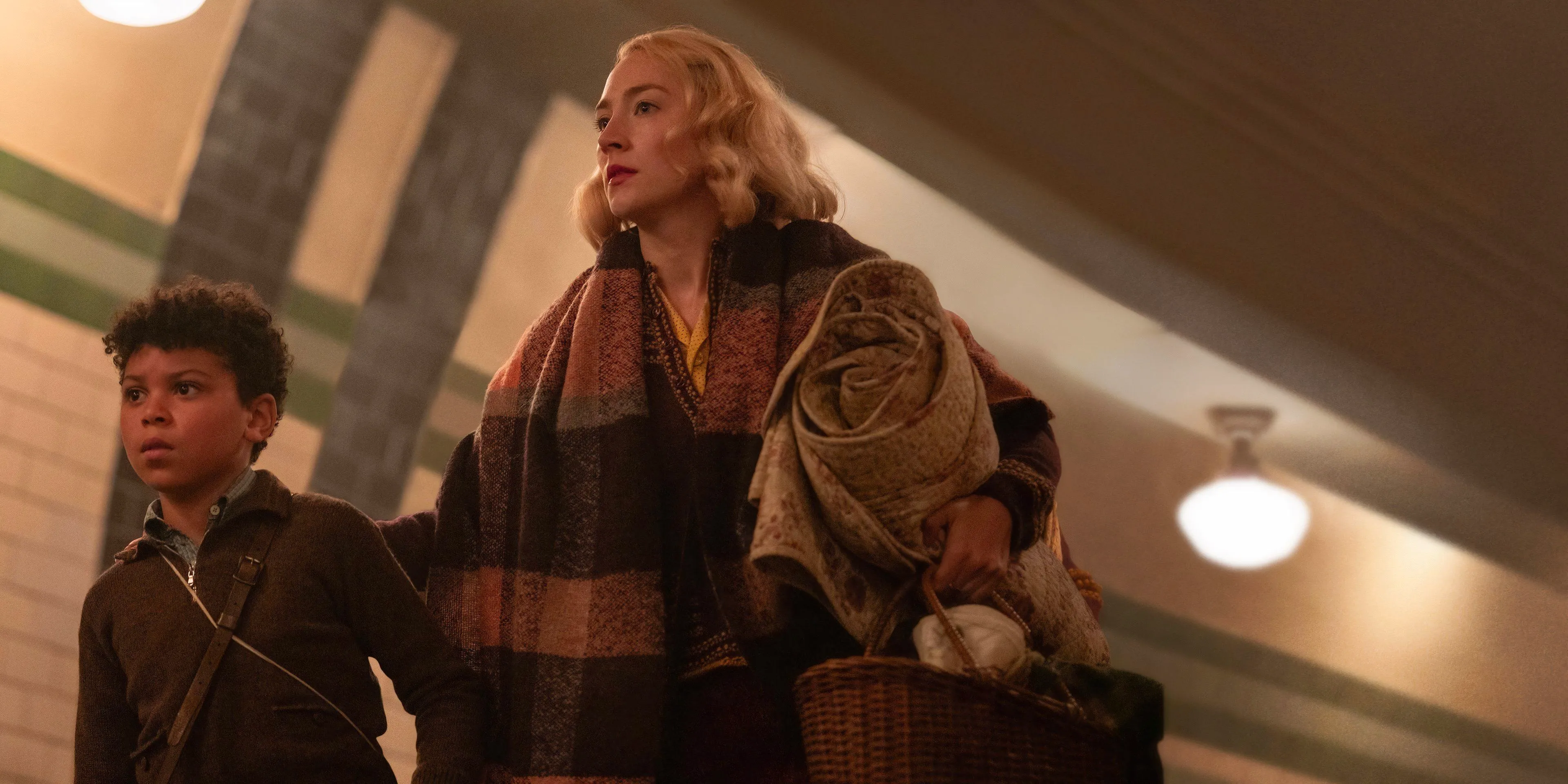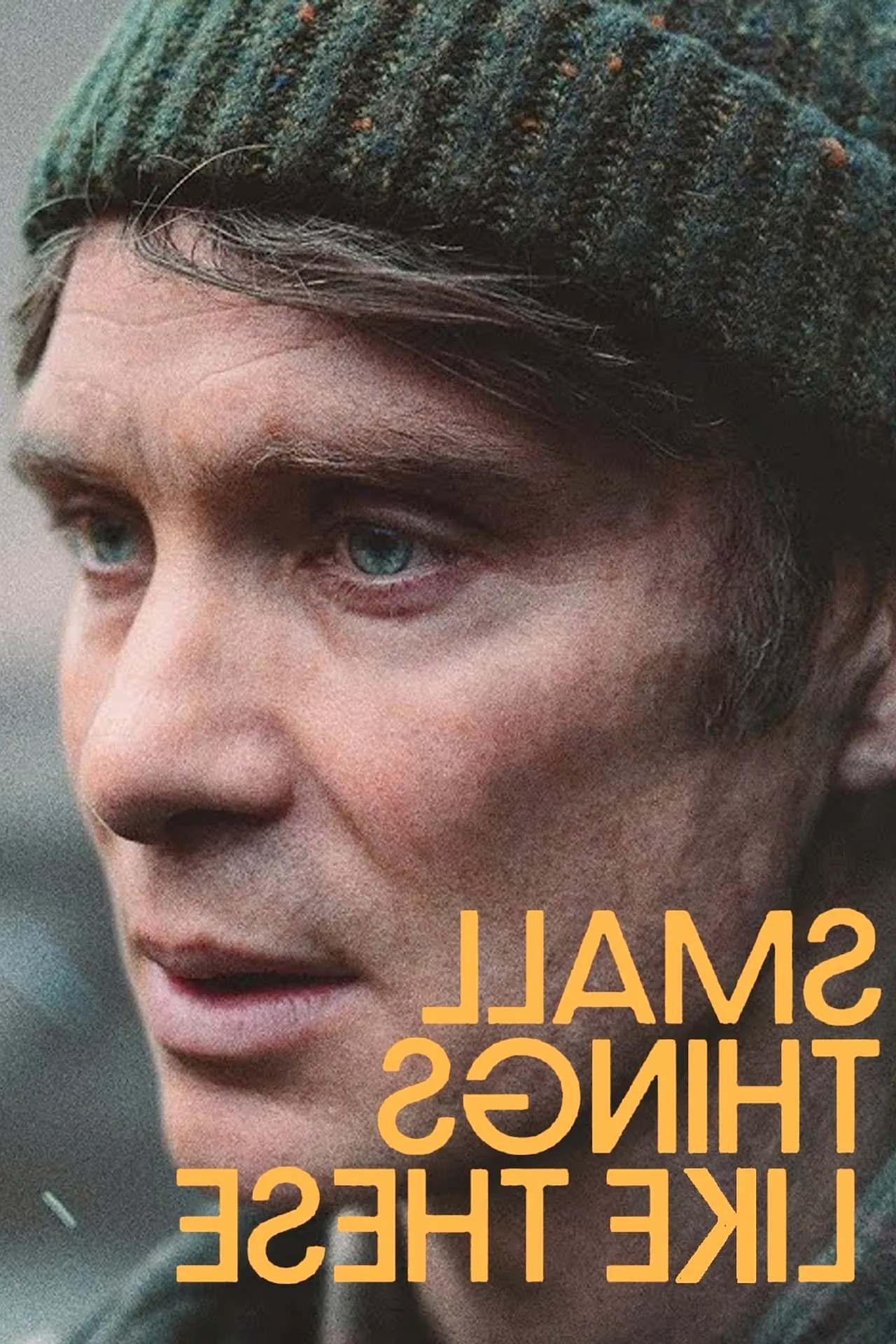Movies News Talk
Small Things Like These Movie Review: Cillian Murphy Shines in Poignant Irish Drama
Small Things Like These: A Quietly Powerful Film That Shows, Don't Tells!
Small Things Like These: A Masterclass in "Show, Don't Tell" Storytelling
Based on Claire Keegan's novel and directed by Tim Mielants (with a fantastic script by Enda Walsh), Small Things Like These isn't your typical feel-good movie. This poignant film, starring the incredibly talented Cillian Murphy as Bill Furlong, masterfully uses its narrative structure to show the viewer the story through careful storytelling; carefully crafted actions that create much bigger effects than dialogue. The entire movie operates primarily through evocative scenes; rather than spoon-feeding information it asks the viewer to carefully examine, focus, and draw those kinds of conclusions, and really think about all those details conveyed subtly, creating an emotional richness that requires slow observation; an immensely compelling and rich experience made possible through those very effective methods which aren’t frequently used.
The entire narrative carefully unfolds through Bill's experiences: he's a coal merchant providing for his family (wife Eileen and five daughters), leading a relatively quiet life in a small Irish town during the 1980s. Yet an encounter with Sarah (Zara Devlin), a young woman from a Magdalene Laundry (an institution run by Catholic nuns), sparks everything. This becomes an intensely crucial element involving Bill’s memories of his mother’s past and the realities of what that means for a younger Bill and ultimately impacting everything that transpires later.
The Power of Subtext: A Masterful Use of Body Language and Flashbacks

Mielants expertly directs this whole film: This quiet observation brings even more urgency and emotion; creating that kind of intense narrative structure; allowing the viewer's understanding to unfold slowly; mirroring the experiences being lived within the narrative.
Bill's kindness and inner conflict really shine. We see Eileen's frustration at his reticence. Flashbacks (handled perfectly!) fill in the narrative gaps: building layers of understanding, as those early events of Bill's childhood create important connections and greatly influences everything which might affect Bill's character later and provide additional clarity to events; building the tense situation in that later confrontation between Bill and Sister Mary (Emily Watson); an incredibly subtle display of control with those deeply veiled implications for those involved, and demonstrating Watson's tremendous ability at this particular style of quiet acting; making those scenes very powerful, generating shivers from several quiet implications alone.
The film explores societal complicity around hidden atrocities; asking critical, essential questions surrounding how important even small acts of defiance and personal responsibility can truly be. It presents this idealistic stance: yet a realistic examination that’s immensely moving.
Cillian Murphy's Stunning Performance: A Masterclass in Less is More

Cillian Murphy's Bill is understated; that approach generates intense emotion and forces the viewer into recognizing just how incredibly important actions; and those silent details could convey even larger points; building those kinds of quiet details which ultimately have enormous significance; forcing the audience into recognizing the deeply quiet intensity inherent within Murphy's method.
Murphy's performance showcases immense internal turmoil. We can read every feeling–the conflict, fear, regret– through body language, and those powerful subtle nuances displayed in his expressions. The superb direction requires those expressions, and those details are expertly employed in this particular film, truly excelling beyond those usually found and is the very thing that makes Small Things Like These stand apart and generate intense emotion that lasts far beyond this single cinematic experience.
The support actors are amazing, too. Devlin's Sarah brings raw desperation, even a certain kind of acceptance. And Watson, though appearing in just one scene—that scene demands immediate and ongoing attention—because of that compelling energy created through the sheer dominance demonstrated through a short moment!
Conclusion: A Poignant, Thought-Provoking Cinematic Masterpiece!

Small Things Like These starts a bit slow, creating the intended space and allows a slow but effective narrative exploration which gradually builds upon the key elements explored throughout. That kind of patient storytelling brings moments of deep heart-wrenching beauty that only builds upon and generates layers of impact for those willing to invest the time to recognize how powerful those kinds of detailed explorations, especially in the areas focusing on character development, could create. Its examination of that tension and inherent conflicts arising between powerful systems— versus that notion of personal responsibility and morality— remains deeply affecting and highly relevant in contemporary contexts, making the experience completely memorable.
- Jujutsu Kaisen Sukuna Figure: Pre-Order the Terrifying King of Curses Now!
- Barbara Crampton's 'The Blue Diamond': Indie Horror Meets Family Dysfunction
Related Articles
- Jujutsu Kaisen Sukuna Figure: Pre-Order the Terrifying King of Curses Now!
- Alien: Romulus Review: A Shocking Reunion That Undid Alien's Best Twist
- Zelda Dungeon Design Showdown: Echoes of Wisdom vs. Tears of the Kingdom
- Daredevil: Born Again - Charlie Cox Wants Classic Suit! Disney+ Release Date!
- Top 10 Fantasy Movies of the 2000s: Must-See Magical Films
- Wolf Among Us 2 Cancelled? New Rumor Shakes Telltale Fans
- The Hill Movie vs. Rickey Hill's Real Life: Untold Story of Love, Loss, and Baseball
- Morgan Freeman's Unexpectedly Hilarious Lego Movie Role: Vitruvius Explained
- Ahsoka Tano: The Complete Untold Story - Star Wars
- Kang the Conqueror: Marvel's Epic Fail? Missed Opportunity?
- Classified Movie Review: Disappointing Spy Thriller with Aaron Eckhart
- Small Things Like These Movie Review: Cillian Murphy Shines in Poignant Irish Drama
- The Line Movie Review: A Gripping Frat House Horror Story
- Smile 2 Review: Naomi Scott's Stellar Performance Can't Save a Flawed Sequel
- Se7en: A Classic Crime Thriller That Will Stay With You
- Allswell in New York Review: A Must-See Character Drama
- Goodrich Movie Review: Michael Keaton in a Hilarious Midlife Crisis
- MadS Review: One-Shot French Horror Film - A Must-See?
- Caddo Lake Movie Review: Shyamalan's Swampy Thriller Misses the Mark
- Blink Documentary: Family Adventure, Blindness, and Unwavering Hope